View this post on Instagram
It’s official: Hari Nef, the scene-stealing transgender actor, model, writer and activist, has accomplished more in the last seven years than most people will in a lifetime… giving us no choice but to stan.
Nef initially rose to fame for her musings online. In 2015, Dazed Magazine declared her a “Tumblr icon” and “New York it girl that’s speaking out against the struggles of the trans community, particularly the violence against trans women of colour that’s poisoning America.”
But her online activism was only the beginning.
That same year, Nef became the first openly transgender model in history to sign a modeling contract contract with IMG Worldwide. Months later, she made her television debut as Gittel on Transparent and was nominated with the cast for Outstanding Performance by an Ensemble in a Comedy Series at the SAG awards.
How about we take this to the next level?
Our newsletter is like a refreshing cocktail (or mocktail) of LGBTQ+ entertainment and pop culture, served up with a side of eye-candy.
Since that time, Nef has made a name for herself in TV and film. She’s had roles in Netflix’s You, as well a truly iconic and hilarious guest spot in this year’s And Just Like That, where she played a rabbi at Charlotte’s kid, Rock’s “They-mitzvah.”
View this post on Instagram
Not to mention, her first feature role in Assassination Nation, written by Euphoria creator, Sam Levinson. Slash Film praised Nef’s part in the movie for defying “tired tropes and showcasing a personality that exists outside of her gender identity.”
Next up, she’ll star alongside Margot Robbie and Ryan Gosling in the much buzzed about Barbie movie, no big deal. However, more impressive than Nef’s acting resume is her outlook on what it means to be an activist, something she didn’t always embrace.
In 2016, Nef explained to Interview how, “Media outlets were calling me an activist before I called myself one. I was skeptical at first. I thought, ‘Hey, I’m not an activist, I’m just trans.’ As my career progressed, so did my impact on trans discourse—a discourse I inherited.”
View this post on Instagram
Nef echoed this same sentiment in Fashion Week Daily last year.
“I got attention early on for being open about being trans. I was so young, willing, and eager to talk about even the most traumatic aspects of my experience.” she told the pub.
However, as time has gone on, Nef has learned to redefine her role as an artist and an activist.
“I’ve now learned to draw certain boundaries; I value myself as an artist, before I value myself as a mouth piece. I’ve come around to a relationship with my work and self that feels grounded and multi-faceted. Allowing yourself to stand in pride without letting your differences define you is a mark of self esteem.”
And this includes making clear what she means by ‘activism.’
“Activism to me is organizing protests, organizing marches, raising money for legal defense funds. Activism to me is not just showing up, not just volunteering, but creating the structures and securing the resources by which those things come to be,” she told Paper Magazine last year.
We couldn’t have said it better itself! It’s so refreshing to hear how Nef’s been able to bridge the gap between her artistry and activism, all while staying true to herself. And if her many accomplishments are any indication, we have no doubt her career will continue to skyrocket. Like we mentioned, we can’t help but stan. Enough ‘Nef said.
View this post on Instagram
View this post on Instagram
View this post on Instagram







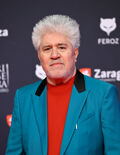
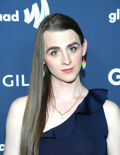
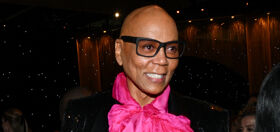
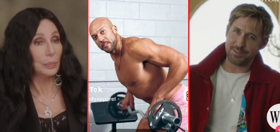
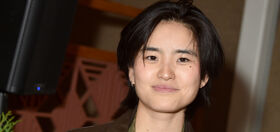



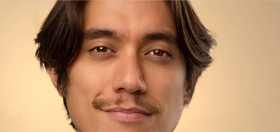

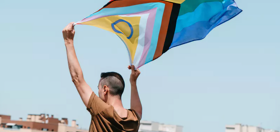

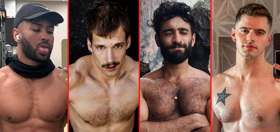
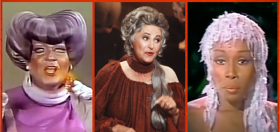
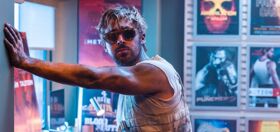

Ronbo
You don’t have to hide your real self behind traditional male/female roles. Be yourself – even if you are gay or lesbian. Especially if you are gay or lesbian!
We will love you more if it’s just the authentic you – no need for costumes, productions, and demands. Redflag: The bigger the show, the smaller the characters.
Winsocki
Authentic Self, be yourself, Do your own thing….. I understand but then those same words can then apply to Donald Trump, Putin, and every nutter on the planet. It needs an addendum.
Thad
Authentic Self, be your kindest, noblest self.
Den
Definitely a shaina maidel! And articulate and bright as well. Wishing her all the mazel she deserves!!
My life would have been so much easier if there had been LGBT Rabbis when I was growing up. Perhaps I would even become a Chazan as my Rabbi hoped I would (he told me he hoped I would go to cantorial school, but I was unwilling to tell him there was no place for gay men in that world, as was certainly true at the time).